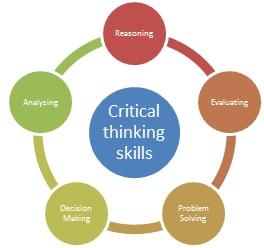Homeschooling is becoming an increasingly popular choice for families around the world. The freedom to tailor a curriculum to a child’s unique learning style, pace, and interests, as well as the flexibility to adjust to changing circumstances, are among the top reasons why more and more parents are opting for homeschooling. However, with so many options available, choosing the right homeschool curriculum can be a daunting task.
Tips to Choose Homeschool Curriculum
Determine Your Child’s Learning Style

Before selecting a curriculum, it is important to understand your child’s learning style. Children learn in different ways, and a curriculum that works well for one child may not work as effectively for another. Some children learn best through visual aids, while others prefer a more hands-on approach. Some children thrive in a structured environment, while others require a more flexible schedule. Knowing your child’s learning style will help you identify a curriculum that aligns with their individual needs.
Evaluate Your Teaching Style
In addition to your child’s learning style, it is important to consider your own teaching style. Do you prefer a more traditional approach to teaching, or are you open to more innovative and creative methods? Are you comfortable with technology, or do you prefer a more hands-on approach? Knowing your own teaching style will help you identify a curriculum that aligns with your strengths and preferences.
Consider Your Child’s Interests and Passions
One of the greatest benefits of homeschooling is the ability to tailor a curriculum to a child’s interests and passions. When choosing a homeschool curriculum, consider your child’s hobbies, talents, and areas of interest. This can help you select materials that will engage your child and foster a love of learning.
Look for Accreditation
While accreditation is not required for homeschooling, choosing an accredited curriculum can provide added peace of mind. Accredited programs have been evaluated and approved by educational organizations and are often recognized by colleges and universities. This can be especially important if you plan to enroll your child in a traditional school or pursue higher education.
Evaluate the Curriculum’s Scope and Sequence
When evaluating a curriculum, it is important to consider its scope and sequence. A scope refers to the topics and subject matter covered in the curriculum, while sequence refers to the order in which these topics are presented. Consider whether the curriculum covers all of the required subjects, as well as any electives or areas of interest. Evaluate the order in which the topics are presented to ensure that they build upon each other in a logical and sequential manner.
Look for Reviews and Recommendations
One of the best ways to evaluate a curriculum is to read reviews and recommendations from other homeschooling families. Seek out online forums, social media groups, and blogs to connect with other homeschoolers and get their feedback on different programs. Look for reviews from families with children who have similar learning styles, interests, and needs as your own.
Consider Your Budget
Homeschooling can be a cost-effective option for families, but it is important to consider your budget when selecting a curriculum. Some curricula can be expensive, while others are more affordable. Consider the cost of textbooks, workbooks, online courses, and other materials when evaluating a curriculum. Look for free or low-cost resources online or through local libraries and community organizations.
Consider Your Long-Term Goals
When selecting a curriculum, it is important to consider your long-term goals for your child’s education. Are you preparing your child for college, or do you have other plans for their future? Consider whether the curriculum aligns with your long-term goals and whether it will provide your child with the knowledge and skills they need to achieve their aspirations.
Choosing the right homeschool curriculum is a crucial decision that can have a significant impact on your child’s education and future success. By considering your child’s learning style, your teaching style, their interests and passions, accreditation, the curriculum’s scope and sequence, reviews and recommendations, your budget, and your long-term goals, you can select a homeschool curriculum that meets your child’s unique needs and sets them up for success.
Remember, there is no one-size-fits-all solution when it comes to homeschooling. Each child is unique and requires a tailored approach to education. Take the time to evaluate your options and find a curriculum that aligns with your child’s individual needs and interests. With the right curriculum, homeschooling can be a fulfilling and rewarding experience for both you and your child.
Keywords: homeschooling, homeschool curriculum, learning style, teaching style, interests, accreditation, scope, sequence, reviews, budget, long-term goals, homeschool curriculum, tips for choosing homeschool curriculum
Check out FoodieScapes for articles on growing and preparing food.
Check out StoryScapes for articles on creative writing.
Subscribe to our newsletter to get information delivered to your inbox on homesteading, growing food, food preparation, travel, fishing, and more.











